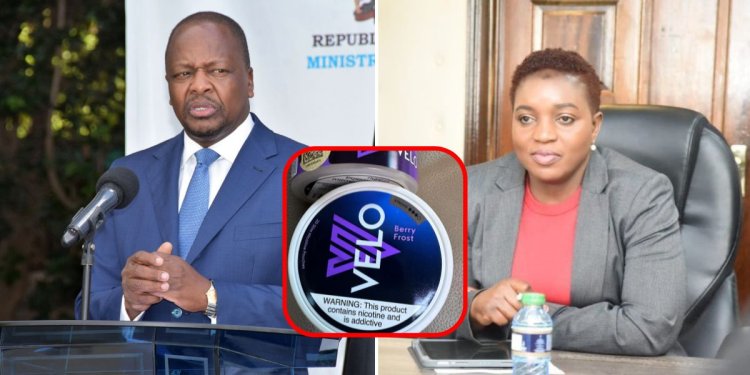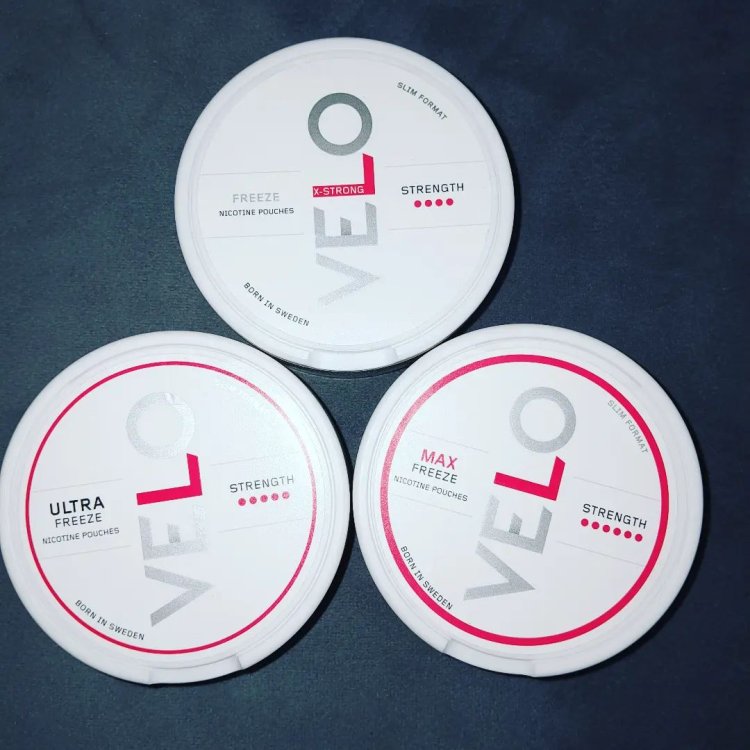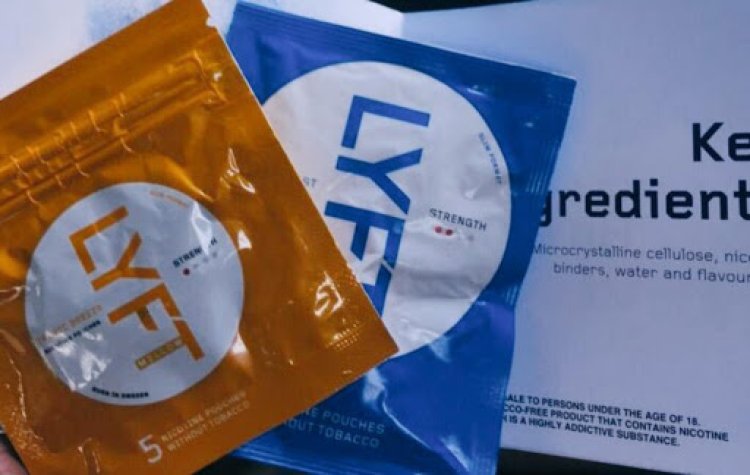Nakhumicha: Why Popular Drug Banned By Mutahi Kagwe Resurfaced
Kagwe had in October 2020 declared the registration of nicotine pouches, including BAT's popular product Lyft, illegal and called for their deregistration

Health Cabinet Secretary (CS) Susan Nakhumicha was on Wednesday, October 4 pressured to explain why the tobacco nicotine pouches banned in 2020 by her predecessor, Mutahi Kagwe, are on sale under a new name, VELO.
Nakhumicha was responding to questions from Members of Parliament (MP) at the National Assembly when nominated MP Sabina Chege rose on a point of order and put the CS to task in explaining why the popular drug which previously was named Lyft, was currently on sale across retail stores and kiosks.
Kagwe had in October 2020 declared the registration of nicotine pouches, including BAT's popular product Lyft, illegal and called for their deregistration. Three years later, however, the drug assumed an international identity under the VELO brand and has been sold for close to Ksh350.
Chege had gone to the point of showcasing the popular drug to her fellow MPs, cautioning them that she would not open them owing to their highly addictive nature before CS Nakhumicha took to respond.

An image of tins of VELO. /FACEBOOK.LYFT VELO KENYA
"VELO is one of the tobacco products that the industry introduced to the market as countries tighten the regulations on tobacco smoking," she began, making reference to the Tobacco Control Act of 2007.
The Act, under which all tobacco products and nicotine pouches are regulated, demands that the wrapping of these products should carry warning messages in both English and Kiswahili languages.
For smokeless tobacco products, it stipulates that such warning messages both in text and picture form should occupy at least 30 per cent of the front cover and 50 per cent of the back.
VELO, short for Velocity Enhancer and Learning Optimiser, is a non-pharmaceutical substance but a nicotine-derived substance composed of organic nicotine derived from tobacco leaf, hence is derived from adherence to the regulations of the Tobacco Act.
According to Nakhumicha, VELO consists of the following ingredients: microcrystalline cellulose, water, salt, sucralose, citric acid, and artificial flavor.
"The nicotine content of VELO can be as high as the nicotine content of other tobacco products such as conventional cigarettes, traditional smokeless tobacco and heated tobacco products," she went on, adding that the VELO products contain different flavours and additives which suppress the smell of tobacco and make it attractive and acceptable to users.
Nakhumicha further noted that the regulatory mechanisms to restrict access to VELO, nicotine and its salts are classified under Part One poisons under the Poisons List confirmation order through Cap 244 of the Pharmacy and Poisons Board (PPB), informing the initial basis of the regulation of nicotine pouches under the brand name Lyft.
"However, Cap 244 excludes nicotine that occurs naturally in tobacco. Therefore, the then Health CS in 2021 directed that nicotine pouches including Lyft be regulated as a tobacco product under the Tobacco Control Act of 2007 and require that they meet the requirements for tobacco products," she continued.
She further noted that despite Lyft no longer being in the market, VELO, manufactured by the British American Tobacco (BAT) and sold by its Kenyan arm, is regulated as a tobacco product under the Act, adding that her Ministry was in the process of reviewing the legislative and regulatory frameworks to address the new and emerging tobacco products.
Nakhumicha however clarified that the sale of tobacco to and by minors is prohibited by the Act and all sellers of the tobacco product are required to verify the age of the purchaser, the same Act that bars the sale of objects resembling tobacco products to minors under the age of 18.
"VELO is a rebrand of BAT's Lyft which was recalled from the Kenyan market following a directive by the former CS. It hit the Kenyan market in June 2022 following a moratorium that was issued on June 15, 2022.
"The said Lyft was not banned but its registration and regulation were changed from Pharmacy and Poisons Act Cap 244 to regulation under the Tobacco Control Act 2007," she explained why Lyft found its way back to the market under VELO.
VELO was viewed as part of BAT's idea of diversify its product line beyond cigarettes and has successfully added tobacco-heating products, traditional oral products (Grizzly), vapour products or electronic cigarettes and modern oral products.
Sale of nicotine pouches in Kenya was stopped in 2019 after the country’s health ministry queried why they were regulated by the Pharmacy and Poisons Board and not the Tobacco Control Board under the Tobacco Act of 2007.
Their sale was allowed in 2022 after consensus that they should be regulated by TCB, meaning that they are treated as tobacco products.


 admin
admin 




